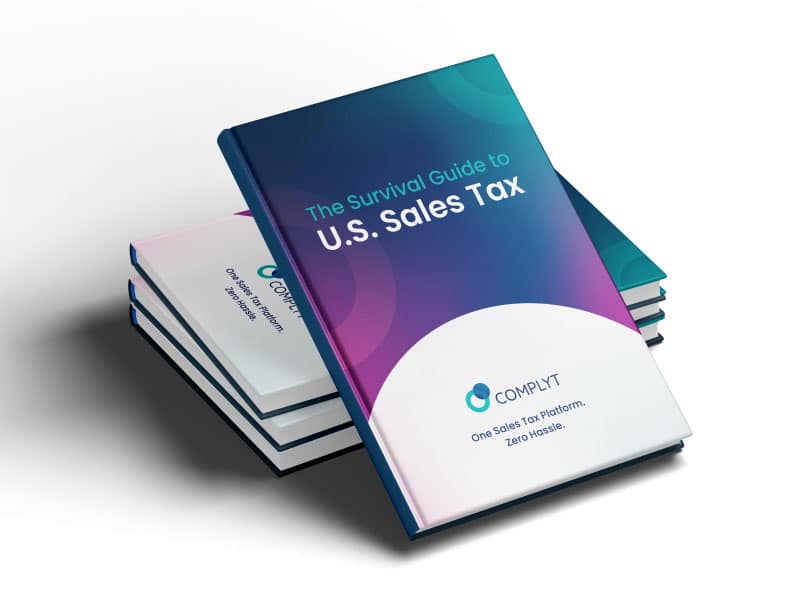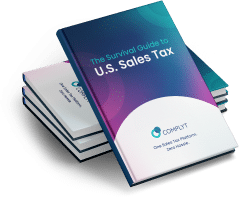What is the sales tax rate in Nebraska?
The state of Nebraska has a base sales tax rate of 5.5%. However, municipalities are allowed to impose their own local sales taxes on top of the state rate. As a result, the total sales tax rate in some cities can be higher. The combined sales tax rate is calculated by adding the state rate to the local rate. These rates may vary from one location to another, depending on the local tax ordinances. Generally, local sales tax rates in Nebraska range from 0.5% to 2.0%.
It is crucial for businesses operating in Nebraska to be aware of the sales tax rate that applies to their location. It is equally important to keep track of any changes in the tax rates, as these can be updated annually.
When should your business collect Sales Tax in Nebraska?
Your business should collect sales tax in Nebraska if it has a physical presence (nexus) in the state or if it meets the economic nexus thresholds. If you have a physical store, office, or employee in Nebraska, or if your sales revenue and transaction volume exceed the economic nexus thresholds, you are required to collect sales tax.
Nebraska Physical Sales Tax Nexus
Physical nexus refers to a tangible connection between a business and a state. If your business has a physical presence in Nebraska, you have a physical nexus and are required to collect sales tax from your customers in the state.
Sales Tax Physical Nexus checklist for Nebraska
The following activities typically create a physical nexus in Nebraska:
- Having a physical storefront or office in Nebraska
- Employing staff or sales representatives in the state
- Storing inventory or property in Nebraska
- Using a distribution center or warehouse in the state
- Attending trade shows or conducting in-person sales calls
If your business engages in any of these activities, you likely have a physical nexus in Nebraska and need to collect sales tax.
Nebraska Economic Nexus Threshold: Revenue, Thresholds, and Transactions
In addition to physical nexus, Nebraska also has economic nexus thresholds. Businesses that surpass these thresholds are required to collect and remit sales tax in the state, even if they do not have a physical presence.
The economic nexus thresholds in Nebraska are $100,000 in sales revenue or
200 separate transactions. Exceeding either of these thresholds within a calendar year means you must register for a sales tax permit in Nebraska and begin collecting sales tax.
Which services are taxable in Nebraska
In Nebraska, only a select few services are subject to sales tax. Generally, these services are taxable if they involve the maintenance or repair of tangible personal property. However, many professional services are exempt from sales tax.
Taxable services in Nebraska include but are not limited to:
- Installation, maintenance, and repair services
- Painting and decorating services
- Laundry, dry cleaning, and alteration services
- Pet grooming services
- Telecommunication services
- Admission to recreational and entertainment events
- Rental of tangible personal property
Please note that this list is not exhaustive, and other services may also be subject to sales tax in Nebraska. It is essential to check the specific taxability of services with the Nebraska Department of Revenue.
Nebraska Sales Tax on Products: How to Calculate What Your Business Should be Charging
Calculating sales tax in Nebraska involves adding the state base rate and the local tax rate (if applicable). The total sales tax rate is then applied to the taxable sales price of products or services sold by your business. If you have a physical presence in multiple locations or sell to customers in different cities, it’s essential to consider the local tax rates in those areas.
For example, if your business is located in a city with a local tax rate of 1%, and the state rate is 5.5%, the total tax rate would be 6.5%. If you sell a product for $100, the sales tax collected would be $6.50 ($100 * 0.065).
How much is the Nebraska clothing tax?
In Nebraska, sales tax applies to the sale of tangible personal property, including clothing. Clothing is taxed at the same rate as other goods, which is the combined state and local rate. As mentioned previously, the state base rate is 5.5%, and local rates can vary.
Nebraska Online Sales Tax: Navigating Digital Product and SaaS Sales Tax Nebraska
As of 2023, Nebraska does not specifically tax Software as a Service (SaaS) or digital services. However, laws and regulations may change, so it’s crucial to stay updated on the taxability of SaaS and digital services in Nebraska.
But while aspects such as Nebraska SaaS sales tax are not yet a concern, the tax landscape is constantly changing and businesses need to stay up to date with the latest changes to legislation to stay compliant.
How can a business get a sales tax permit in Nebraska?
Obtaining a sales tax permit in Nebraska is essential for businesses that sell taxable goods or services. The Nebraska Department of Revenue provides a straightforward process for obtaining a sales tax permit:
Online Registration: The Nebraska Department of Revenue offers an online registration system called the NebFile Business Online Portal. Register your business, provide the necessary information, and submit the application.
Paper Application: Alternatively, you can submit a paper application (Form 20) by mail or in person to the Nebraska Department of Revenue.
Approval and Issuance: Once your application is approved, you will receive a Sales Tax Permit and a Nebraska Tax ID Number. You must display the permit in a visible location within your business premises.
Collecting Sales Tax in Nebraska as a Business
Once you have your sales tax permit, you can start collecting sales tax from your customers. You must collect the appropriate state and local sales tax on all taxable transactions. Keep accurate records of your sales and tax collection, as this information will be needed when filing your sales tax returns.
Nebraska Tax Return Due Dates Explained
In Nebraska, sales tax returns are due either monthly, quarterly, or annually, depending on your sales volume:
- Monthly: If your sales tax liability exceeds $3,000 per month, you must file monthly.
- Quarterly: If your tax liability is between $500 and $3,000 per quarter, you should file quarterly.
- Annually: If your annual tax liability is less than $500, you can file annually.
Filing deadlines for each period are:
- Monthly: The 20th of the following month
- Quarterly: The 20th of the month following the end of the quarter
- Annually: January 20th of the following year

